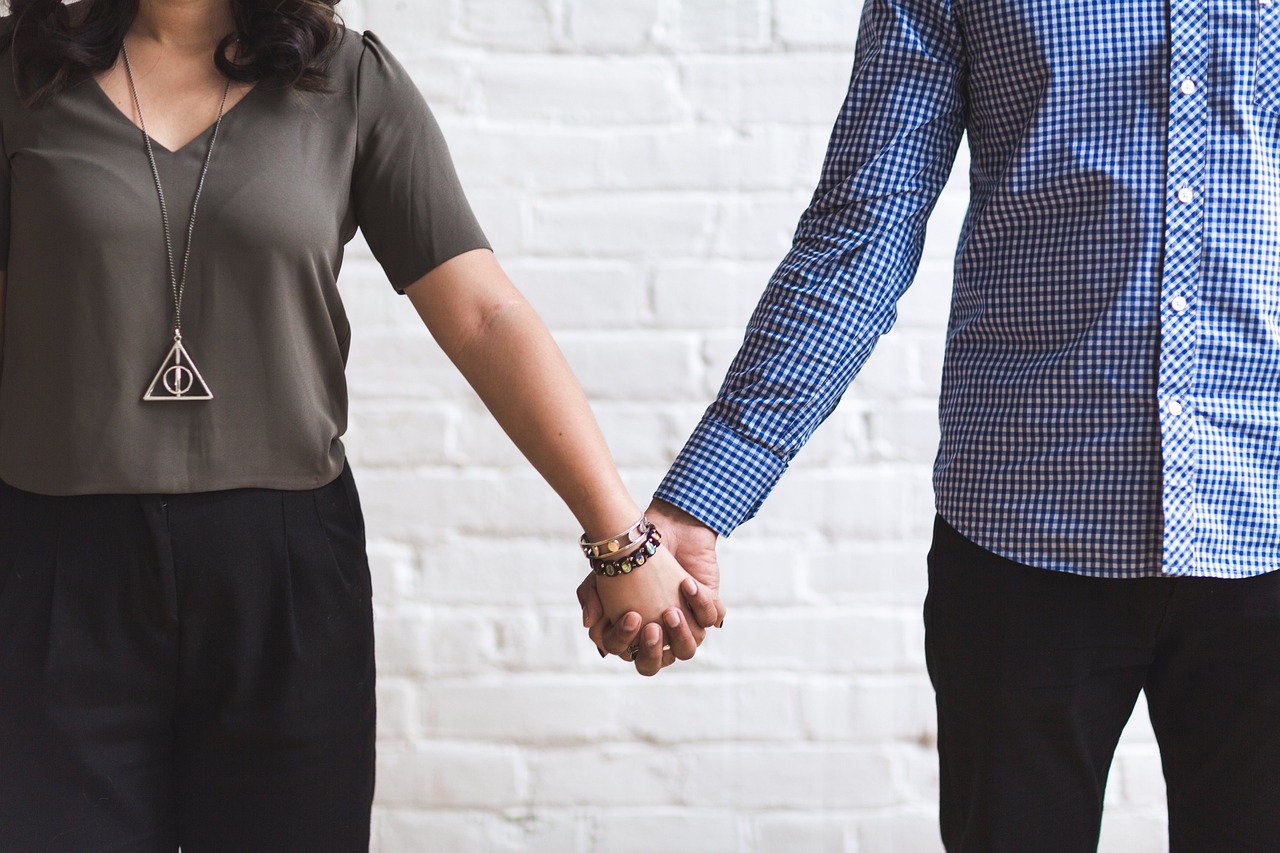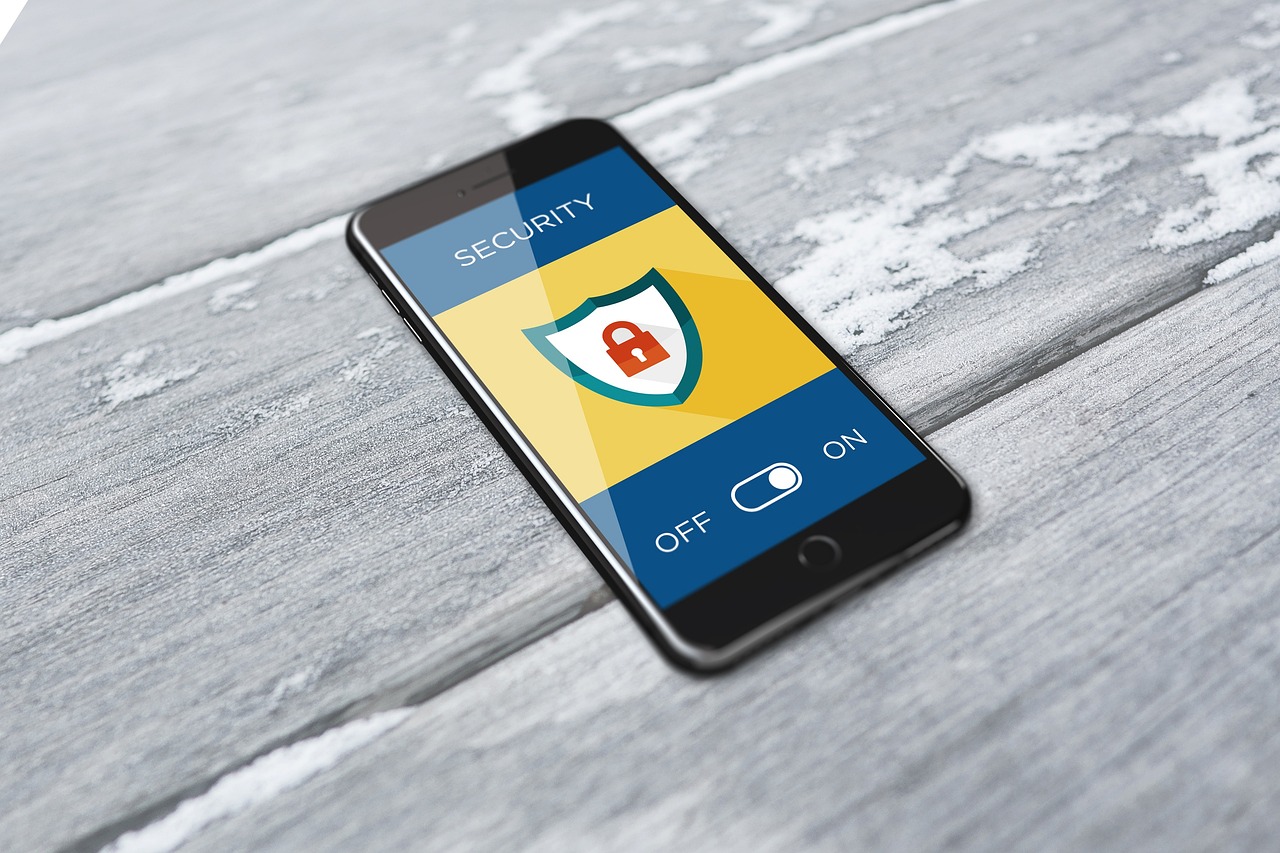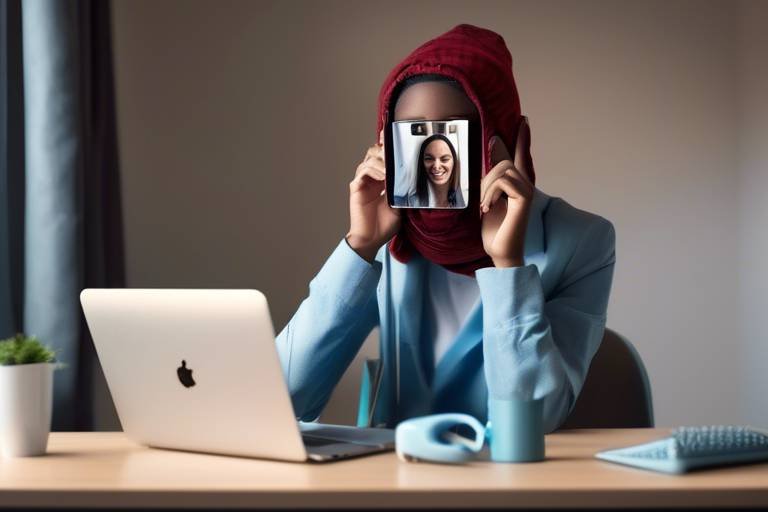Being Cautious with Online Relationships
In today's digital age, connecting with others online has become as common as grabbing a cup of coffee. Whether it's through social media, dating apps, or online forums, the internet provides a plethora of opportunities to meet new people. However, while the digital landscape can be exciting, it also comes with its fair share of risks. It's crucial to approach online relationships with a sense of caution and awareness. After all, just as you wouldn't blindly trust a stranger in real life, the same principle applies in the virtual world.
Imagine walking into a crowded room filled with strangers. You wouldn’t divulge your deepest secrets or personal information to just anyone, right? The same mindset should be applied when navigating online interactions. With the anonymity that the internet provides, it's easy for individuals to misrepresent themselves. This can lead to situations where trust is misplaced, and the consequences can be severe. From emotional distress to financial loss, the stakes are high, making it imperative to prioritize safety.
So, how can you enjoy the benefits of online relationships while minimizing risks? The key is to stay informed and vigilant. Recognizing potential dangers, such as catfishing and scams, is the first step in protecting yourself. Additionally, understanding the importance of privacy settings and being cautious about the information you share can significantly enhance your safety. In the following sections, we will explore these aspects in detail, providing you with practical tips and insights to help you navigate the complex world of online relationships with confidence.
Ultimately, being cautious doesn't mean you have to be paranoid. It's about finding a balance—embracing the excitement of new connections while being aware of the potential pitfalls. As we dive deeper into this topic, you'll discover how to identify red flags, build trust gradually, and recognize healthy relationships. By equipping yourself with knowledge and strategies, you can enjoy meaningful interactions without compromising your safety.
- What is catfishing? Catfishing is when someone creates a fake identity online to deceive others, often for emotional manipulation or financial gain.
- How can I protect my privacy in online relationships? Use privacy settings on social media, be cautious about what personal information you share, and consider using a separate email address for online interactions.
- What are the signs of a healthy online relationship? Look for mutual respect, open communication, support, and encouragement as key indicators of a positive connection.
- When should I end an online relationship? If you notice red flags such as dishonesty, manipulation, or feeling uncomfortable, it may be time to disengage.

Understanding Online Risks
In today’s digital age, forming relationships online can be as thrilling as it is perilous. While the internet opens up a world of opportunities to connect with people from all walks of life, it also harbors a myriad of risks that can leave you vulnerable. Understanding these risks is the first step in safeguarding yourself and ensuring that your online interactions are both enjoyable and secure.
One of the most prevalent dangers in online relationships is catfishing. This deceptive practice occurs when someone creates a false identity to manipulate or deceive others. Imagine falling for someone who seems perfect, only to discover that their entire persona is a fabrication. This can lead to emotional distress and, in some cases, significant financial loss. Another critical issue is scams. From fake charities to romance scams, the internet is rife with individuals who exploit unsuspecting victims for financial gain. These scams can take many forms, including:
- Romance scams: Manipulating emotions to extract money.
- Phishing: Attempting to steal personal information through deceptive emails or messages.
- Investment scams: Promising high returns on investments that don’t exist.
Additionally, there are serious privacy issues that arise when sharing personal information online. Many people underestimate the risks of oversharing, which can lead to identity theft or unwanted attention. For instance, posting too much about your daily life or whereabouts can make you an easy target for stalkers or scammers. To help illustrate these risks, consider the following table that summarizes common online threats:
| Type of Risk | Description | Potential Consequences |
|---|---|---|
| Catfishing | Creating a false identity to deceive others | Emotional distress, financial loss |
| Scams | Fraudulent schemes aimed at stealing money or information | Financial loss, identity theft |
| Privacy Issues | Oversharing personal information online | Stalking, unwanted attention |
Being aware of these risks is crucial, but it’s equally important to take proactive steps to protect yourself. The internet can be a wonderful place for connection, but it’s essential to navigate it with caution. Always remember to verify the identities of the people you interact with and be skeptical of any requests for personal information or money. By staying informed and vigilant, you can enjoy the benefits of online relationships while minimizing the risks.

Identifying Red Flags
When diving into the world of online relationships, it’s crucial to stay alert and recognize the red flags that may indicate something is off. Just like in the real world, not everyone online has good intentions, and spotting these warning signs early can save you from potential heartache or even financial loss. So, what should you be on the lookout for? Let’s dive deeper into some common indicators that your online connection might not be as genuine as it seems.
One of the first things to consider is the communication style. If your online partner is evasive or avoids answering questions about themselves, that should raise a red flag. Genuine individuals are usually open and willing to share information about their lives, interests, and backgrounds. If you find that your conversations are superficial or that they consistently deflect personal questions, it might be time to reconsider the relationship.
Another significant warning sign is inconsistency in stories. If you notice that your partner’s narratives change frequently or don’t align with what they’ve told you before, it’s a clear indication that something is amiss. For instance, if they claim to live in one city but then mention friends or family in another without a reasonable explanation, this inconsistency can be a signal of deceit.
Moreover, be wary of anyone who pressures you into sharing personal information too quickly. Healthy relationships develop over time, and a partner who rushes you into divulging sensitive details may not have your best interests at heart. Pay attention to how they react when you set boundaries; if they become defensive or dismissive, consider it a major red flag.
Lastly, trust your gut feeling. If something feels off, it probably is. Your intuition is a powerful tool, and it’s essential to listen to it. If you find yourself feeling uneasy or anxious about the relationship, take a step back and evaluate the situation. Remember, it’s better to be cautious than to rush into something that could potentially harm you.
In summary, identifying red flags in online relationships involves a combination of observing communication patterns, recognizing inconsistencies, and trusting your instincts. By staying vigilant and aware, you can navigate the digital landscape with greater confidence and security.
- What are some common red flags in online relationships?
Common red flags include evasive communication, inconsistencies in stories, pressure to share personal information, and defensive behavior when boundaries are set.
- How can I protect myself from online scams?
Always verify identities, avoid sharing sensitive information too soon, and trust your instincts. If something feels off, don’t hesitate to disengage.
- What should I do if I suspect I'm being catfished?
If you suspect catfishing, take steps to verify the person's identity, such as conducting a reverse image search or asking for a video call. If doubts persist, it’s best to cut off contact.

Catfishing Explained
In the vast ocean of the internet, where connections can be made with just a click, the phenomenon of catfishing lurks like a shark beneath the surface. Catfishing occurs when someone creates a false identity online to deceive another person. This deception can range from harmless fun to malicious intent, leading to emotional distress, financial loss, and a shattered sense of trust. Imagine meeting someone who seems perfect on paper—charming, funny, and attentive—only to discover that they are nothing like their online persona. It’s a digital masquerade that can leave you feeling vulnerable and betrayed.
So, how does one recognize the signs of catfishing? First, it's essential to understand that not everyone online is who they claim to be. Often, catfishers will use stolen photos, create fake social media profiles, and weave intricate stories that tug at your heartstrings. They may express intense feelings quickly, pushing for emotional connections before you’ve had the chance to truly get to know them. This rapid escalation can be a major red flag. Furthermore, if they consistently avoid video calls or in-person meetings, it’s time to question their authenticity. Trust your instincts—if something feels off, it probably is.
Catfishing can have serious repercussions, not just emotionally but also financially. Victims may find themselves sending money to someone they’ve never met, believing that they are helping a loved one in need. This is where the stakes become high, and the consequences can be devastating. To protect yourself from falling into this trap, it's crucial to verify the identity of anyone you meet online. Consider conducting reverse image searches on their profile pictures or asking for additional photos that include current date stamps. Remember, a genuine person will understand your need for caution.
In conclusion, catfishing is a deceptive practice that can lead to significant emotional and financial harm. By staying vigilant and aware of the signs, you can navigate the online world more safely. If you ever feel uncertain about someone you’re communicating with, take a step back and reassess the situation. Your safety and well-being should always come first.

Signs of Catfishing
When navigating the vast ocean of online relationships, it's crucial to be aware of the potential dangers lurking beneath the surface. One of the most insidious threats is catfishing, where someone creates a false identity to deceive others. Recognizing the signs of catfishing can be your lifeline in avoiding emotional and financial turmoil. So, how do you spot a catfish? Here are some key indicators to keep an eye out for:
First and foremost, inconsistencies in their stories can be a glaring red flag. If your online acquaintance shares details about their life that seem to change from one conversation to the next, take a step back. For instance, they might tell you they live in one city, only to later mention they’re from another. This kind of shifting narrative can indicate that they’re not being truthful about their identity.
Another significant warning sign is a reluctance to meet in person. If someone is constantly coming up with excuses to avoid video calls or face-to-face meetings, it’s time to raise your eyebrows. Genuine connections often flourish in real life, and while it’s understandable to be cautious initially, a persistent avoidance can signal that they are hiding something.
Additionally, pay attention to their social media presence. A lack of photos, few friends, or a profile that appears to be brand new can be indicative of a catfish. If their online persona seems too perfect or lacks the usual human imperfections, such as candid photos or everyday posts, it’s worth investigating further. You might want to conduct a reverse image search to see if their profile pictures are being used elsewhere on the internet. This can reveal if they’re using someone else's identity.
Lastly, if they start asking for money or personal information early in the relationship, this is a major red flag. Many catfishers attempt to manipulate their victims into providing financial support, often under the guise of a fabricated crisis. Always remember, a healthy relationship should not involve financial transactions, especially in the early stages.
Being aware of these signs can help you protect yourself from falling victim to catfishing. Trust your instincts—if something feels off, it probably is. The online world can be a tricky place, but with vigilance and awareness, you can navigate it safely.
- What should I do if I suspect someone is catfishing me?
It's important to gather evidence, such as screenshots of conversations and profile details. Then, consider confronting the individual about your concerns. If they continue to evade your questions, it may be best to cut off communication. - Can catfishing happen on all social media platforms?
Yes, catfishing can occur on any platform where people interact, including dating apps, social media sites, and even gaming communities. Always be cautious, regardless of where you meet someone online. - How can I protect myself from catfishing?
Be skeptical of overly perfect profiles, verify identities through video calls, and avoid sharing personal information too soon. Trust your gut feelings if something seems off.

Steps to Take
When you find yourself in a situation where you suspect you are being catfished, it’s essential to take immediate and thoughtful steps to protect yourself. First and foremost, trust your instincts. If something feels off, it probably is. Begin by gathering information about the person you’re interacting with. Look for inconsistencies in their stories or details. For instance, if they claim to be living in one city but their social media shows they are in another, that's a red flag.
Next, you should verify their identity through various means. This can include:
- Conducting a reverse image search on their profile pictures to see if they are using someone else's photos.
- Asking them to share additional photos or videos that are time-stamped or taken in real-time.
- Requesting to connect via a video call, which can often reveal more than a text conversation.
If these attempts to verify their identity yield no satisfactory results, it may be time to consider disengaging from the relationship. Remember, your safety and emotional well-being should always come first. When you decide to cut ties, do so firmly but respectfully. You can simply express that you feel uncomfortable and no longer wish to continue the conversation. If the person reacts negatively, it reinforces that you made the right choice.
Additionally, it’s wise to report the account to the platform you are using. Most social media and dating sites have policies against catfishing and can take action to protect others from falling victim. By reporting, you not only safeguard yourself but also help prevent others from encountering the same deceit.
Finally, take a moment to reflect on the experience. It can be disheartening to realize you were misled, but it’s crucial to learn from the situation. Consider what signs you may have overlooked and how you can apply this knowledge in future online interactions. Remember, staying vigilant and informed is your best defense against online deception.

Scams and Fraud
When it comes to online relationships, the digital world can be a breeding ground for . Many individuals enter these virtual spaces with genuine intentions, only to find themselves ensnared in deceitful traps. The anonymity of the internet can embolden scammers, making it crucial for you to remain vigilant and informed. Understanding the common types of scams can help you navigate these waters safely.
One prevalent scam involves individuals posing as romantic interests to exploit your emotions and finances. These scammers often create elaborate backstories to gain your trust and affection. They may share heartfelt stories about their lives, often filled with hardship, to draw you in. Once they have your attention, they might request money for various reasons, such as medical emergencies or travel expenses. This is often referred to as a romance scam, and it can leave victims feeling not only financially drained but emotionally devastated.
Another common type of scam is the phishing scam, where scammers impersonate legitimate organizations to steal your personal information. They may send you emails or messages that appear to be from trusted sources, urging you to click on links or provide sensitive information. Once they have your details, they can access your accounts, leading to identity theft and financial loss.
To help you identify these scams, here are some key warning signs to watch out for:
- Requests for Money: If someone you've never met in person asks for financial assistance, be extremely cautious.
- Too Good to Be True: If a relationship seems to progress too quickly or feels perfect, it might be a red flag.
- Inconsistent Information: Pay attention to discrepancies in their stories or details that don’t add up.
- Reluctance to Meet: If someone avoids meeting in person or video chatting, it could indicate they are hiding something.
Recognizing these signs can be the first step in protecting yourself from potential fraud. If you ever find yourself in a situation that raises suspicion, it’s essential to take action. Start by conducting a reverse image search to verify the person’s identity. Scammers often use stolen photos, and a quick search can reveal their true identity. Additionally, consider discussing your concerns with a trusted friend or family member who can provide an outside perspective.
In the unfortunate event that you fall victim to a scam, don’t hesitate to report it. Many platforms have specific protocols for reporting fraudulent behavior, and doing so can help protect others from similar experiences. Remember, the more informed you are, the better equipped you will be to navigate the complexities of online relationships safely.
Q: How can I tell if someone is trying to scam me online?
A: Look for red flags such as requests for money, inconsistent stories, or reluctance to meet in person. Trust your instincts; if something feels off, it probably is.
Q: What should I do if I think I’m being scammed?
A: First, cease all communication with the person. Then, gather any evidence and report the scam to the platform you were using and local authorities if necessary.
Q: Are there any tools to help protect myself from online scams?
A: Yes! Use reverse image search tools, enable two-factor authentication on your accounts, and be cautious about sharing personal information.

Protecting Your Privacy
In today's digital age, is more important than ever, especially in the realm of online relationships. When you connect with someone through social media or dating apps, you might feel an instant bond, but it's crucial to remember that not everyone has good intentions. Safeguarding your personal information should be a top priority, as it can prevent unwanted situations and keep you safe from potential harm.
One of the first steps in protecting your privacy is understanding what personal information is safe to share. While it might be tempting to open up and share details about your life, such as your home address, phone number, or financial information, it's best to keep this information private until you are absolutely sure about the other person’s intentions. Consider this: sharing too much too soon is like giving away the keys to your house before you've even met the neighbor!
Another effective strategy is to utilize the privacy settings available on social media platforms and dating sites. Most of these platforms provide options to control who can see your profile, posts, and personal information. By adjusting these settings, you can limit exposure to unwanted attention and protect your privacy. For instance, you might want to set your profile to private, ensuring that only approved friends or connections can view your information. Here’s a quick guide on how to adjust privacy settings:
| Platform | Steps to Adjust Privacy Settings |
|---|---|
| Go to Settings > Privacy > Edit your settings accordingly. | |
| Go to Settings > Privacy > Toggle on Private Account. | |
| Tinder | Go to Settings > Toggle on Show Me on Tinder. |
Moreover, when engaging in online relationships, it’s essential to be cautious about the information you share in conversations. Consider using a temporary email address or a messaging app that offers end-to-end encryption. This way, you can communicate without exposing your primary contact details. Remember, it’s not just about what you share, but also about how you share it. Avoid sending sensitive information through unsecured channels.
Lastly, always trust your instincts. If something feels off or if a conversation takes a turn that makes you uncomfortable, don’t hesitate to take a step back. It’s perfectly okay to prioritize your safety over maintaining a connection. After all, a healthy relationship should never compromise your well-being.
In conclusion, protecting your privacy in online relationships is not just about being cautious; it's about being smart. By understanding what to share, utilizing privacy settings, and trusting your instincts, you can create a safer online experience. Remember, your personal information is valuable—treat it with the respect it deserves!
- What information should I avoid sharing online? It's best to keep sensitive information such as your home address, financial details, and personal identification numbers private until you fully trust the other person.
- How can I tell if someone is trustworthy online? Look for consistency in their stories, willingness to share their own information, and signs of genuine interest in getting to know you.
- What should I do if I feel uncomfortable in an online relationship? Trust your instincts and consider disengaging from the conversation or blocking the person if necessary.

Sharing Personal Information
When it comes to online relationships, the topic of is a double-edged sword. On one hand, sharing details about yourself can foster connection and build trust, but on the other hand, it can expose you to risks that may jeopardize your safety and privacy. So, how do you navigate this tricky terrain? First and foremost, it's crucial to understand what types of information are safe to share and which ones should remain private.
Start with the basics: your name, age, and interests are generally harmless to share, especially if you're building a rapport with someone. However, sensitive information such as your home address, financial details, or anything that could be used for identity theft should be kept under wraps. Think of it like inviting someone into your home; you wouldn’t show them your bank statements or personal diaries, would you?
Additionally, consider the context of your conversations. If someone is pushing you for information that makes you uncomfortable, it’s a significant red flag. Trust your instincts! It’s perfectly okay to set boundaries regarding what you’re willing to share. Here are a few guidelines to help you make informed decisions:
- Assess the Relationship: How long have you known this person? Have they proven to be trustworthy?
- Consider the Platform: Is this a secure platform? Are there privacy settings that you can utilize?
- Limit Sensitive Details: Avoid sharing anything that could lead to identity theft or put you in a vulnerable position.
Moreover, it’s wise to take advantage of privacy settings on social media and dating platforms. These settings can help you control who sees your information and how much they can access. For instance, you can restrict your profile visibility to only those you trust, which adds an extra layer of security. Always remember, in the digital age, your safety should be your top priority.
In conclusion, while sharing personal information can help deepen your connections, it’s essential to proceed with caution. By being mindful of what you share and with whom, you can enjoy the benefits of online relationships while safeguarding your privacy. Remember, the digital world is vast, and not everyone has your best interests at heart. So, keep your guard up and choose wisely!

Using Privacy Settings
In today's digital landscape, effectively is more important than ever. With the sheer volume of personal information we share online, it’s crucial to take proactive steps to protect ourselves. Social media platforms and dating apps often come with a plethora of privacy options, but many users overlook them, leaving their personal data vulnerable. So, how can you navigate these settings to enhance your safety?
First and foremost, take the time to explore the privacy settings of any platform you use. Most social media sites allow you to customize who can see your posts, send you messages, or even find your profile. For instance, you might want to limit your audience to just friends or approved followers. This way, you can control who has access to your personal information and posts. If you're using a dating app, ensure that your profile is only visible to users you’ve matched with, rather than the entire user base.
Another critical aspect of privacy settings is managing your location information. Many apps request access to your location, which can be a double-edged sword. While it can enhance your experience by providing localized content, it can also expose you to unwanted attention. Always review the location-sharing settings and consider disabling them unless absolutely necessary. This small change can significantly reduce your risk of being tracked by someone with ill intentions.
Additionally, consider the following privacy measures:
- Profile Visibility: Set your profile to private to control who can view your information.
- Friend Requests: Only accept requests from people you know personally.
- Blocking and Reporting: Familiarize yourself with how to block or report suspicious users quickly.
Lastly, remember that privacy settings are not a one-time fix. Regularly check and update them as platforms frequently change their policies and features. By staying informed and vigilant, you can significantly enhance your online safety and enjoy your digital interactions without unnecessary worries.
Q1: How often should I check my privacy settings?
A1: It's a good practice to review your privacy settings at least once every few months or whenever a platform updates its policies.
Q2: Can I customize who sees my posts on social media?
A2: Yes, most social media platforms allow you to customize your audience for each post, so you can choose who sees your content.
Q3: What should I do if I encounter a suspicious profile?
A3: You should report or block the profile immediately to protect yourself and others from potential harm.
Q4: Is it safe to share my location on dating apps?
A4: It's best to keep your location settings off unless necessary, as sharing your location can expose you to risks.

Building Trust Gradually
Establishing trust in online relationships is not something that happens overnight; it’s a process that requires time, patience, and effort. Think of trust as a delicate plant that needs the right conditions to grow. If you rush it, you might end up with a wilted mess instead of a flourishing connection. So, how do you nurture this trust effectively? It starts with open and honest communication.
Effective communication is the bedrock of any relationship, especially in the digital realm where nuances can easily be lost. When you engage in conversations, make sure you’re not just talking at each other but truly listening. Ask questions that delve deeper than surface-level chit-chat. For instance, instead of asking, “How was your day?” consider something like, “What was the highlight of your day?” This encourages a more meaningful exchange and shows that you genuinely care about the other person's experiences.
Moreover, sharing personal stories can also help build that bridge of trust. When you open up about your life, your background, or even your struggles, it creates a space for the other person to do the same. But remember, it’s essential to strike a balance. You don’t want to overshare too soon, as this can feel overwhelming. Instead, gradually reveal more about yourself as the relationship progresses. Think of it like peeling an onion; each layer you reveal brings you both closer to the core of who you are.
Another crucial aspect of building trust is setting boundaries. Boundaries are like the guardrails on a highway; they keep you on the right path and prevent you from veering off into dangerous territory. Discuss what is acceptable and what isn’t in your interactions. For example, if you’re not comfortable sharing certain personal information right away, communicate that clearly. This not only protects your privacy but also sets a precedent for mutual respect within the relationship.
As you continue to interact, pay attention to how the other person responds to your boundaries. Are they respectful of your limits? Do they reciprocate by sharing their own boundaries? This mutual understanding is a significant indicator of a healthy relationship. Remember, trust is a two-way street; both parties need to feel safe and respected.
Lastly, be mindful of the pace at which you’re moving. Just like in any relationship, rushing things can lead to misunderstandings and mistrust. Take the time to enjoy the journey of getting to know each other. Celebrate the small milestones, whether it’s a deep conversation or a shared laugh over a funny meme. These moments are the building blocks of a solid foundation.
In conclusion, building trust in online relationships is a gradual process that requires effective communication, boundary-setting, and mutual respect. By taking your time and being intentional about your interactions, you can cultivate a strong and trusting connection that stands the test of time.
- How long does it take to build trust in an online relationship? Trust is unique to each relationship; it can take weeks, months, or even longer, depending on the individuals involved.
- What are some signs that trust is being established? Signs include open communication, willingness to share personal stories, and respect for boundaries.
- What should I do if I feel trust is being broken? Address your concerns directly with the other person and evaluate whether the relationship is worth continuing.

Effective Communication
When it comes to online relationships, is the bedrock upon which trust and understanding are built. Imagine trying to construct a house without a solid foundation; it simply won’t stand the test of time. Similarly, without clear and open dialogue, your online connection may crumble under the weight of misunderstandings and assumptions. So, how do you ensure that your communication remains strong and effective?
First and foremost, it's essential to be honest and transparent in your conversations. This means sharing your thoughts and feelings openly, and not holding back important information that could affect the relationship. For instance, if something is bothering you, don’t hesitate to voice your concerns. This not only helps in addressing issues early on but also shows the other person that you value their feelings and the relationship itself.
Another key aspect of effective communication is active listening. This involves truly paying attention to what the other person is saying, rather than just waiting for your turn to speak. It’s about being present in the moment and acknowledging their feelings and opinions. To practice active listening, you might consider the following:
- Maintain eye contact during video calls to show engagement.
- Summarize what the other person said to ensure you understand correctly.
- Avoid interrupting while they are speaking; let them finish their thoughts.
Moreover, don’t underestimate the power of non-verbal cues. In online interactions, this can translate to how you express yourself through your tone of voice, facial expressions during video chats, or even the emojis you choose to use. These elements can significantly enhance your communication by adding context and emotion to your words. For example, a simple smiley face can lighten the mood or convey friendliness, making the conversation feel warmer and more inviting.
Lastly, remember that timing is everything. If you sense that your partner is having a bad day or is preoccupied, it might not be the best moment to bring up significant topics. Being mindful of when you choose to communicate can help ensure that your messages are received in the spirit they are intended. This doesn’t mean avoiding difficult conversations; rather, it’s about being strategic and considerate in your approach.
In summary, effective communication in online relationships is all about being honest, actively listening, paying attention to non-verbal cues, and choosing the right moments to engage. By incorporating these practices into your interactions, you can foster a deeper connection that is built on trust and mutual understanding.
Here are some common questions regarding effective communication in online relationships:
- What if my partner doesn’t communicate openly? - Encourage them to share their thoughts and feelings by creating a safe space for dialogue.
- How can I improve my active listening skills? - Practice summarizing what the other person says and ask clarifying questions to show you’re engaged.
- Is it okay to talk about difficult topics online? - Yes, but choose the right time and approach the conversation with sensitivity and care.

Setting Boundaries
Setting boundaries in online relationships is not just a good idea; it's a necessary component for maintaining your emotional well-being and personal safety. Think of boundaries as the invisible fence that protects your personal space, allowing you to engage with others while keeping yourself secure. Without these boundaries, you might find yourself in situations that feel uncomfortable or even threatening.
When you start interacting with someone online, it’s crucial to communicate your limits clearly. This can include what you’re comfortable discussing, how much personal information you’re willing to share, and the pace at which you’d like the relationship to progress. For instance, if you’re not ready to share your phone number or meet in person, it’s perfectly okay to express that. Remember, a healthy relationship thrives on open communication and mutual respect.
Here are some important aspects to consider when setting your boundaries:
- Be Clear and Direct: Ambiguity can lead to misunderstandings. Make sure your boundaries are clear from the start.
- Respect Their Boundaries: Just as you have your limits, so do they. Acknowledge and respect their boundaries to foster a trusting environment.
- Be Prepared to Enforce Them: If someone crosses your boundaries, it’s essential to address it immediately. Ignoring it can lead to bigger issues down the line.
Another crucial aspect of boundary-setting is being aware of your own feelings. If something makes you uncomfortable, it’s a sign that you need to reassess your boundaries. Trust your instincts! For example, if someone is pressuring you to share more personal details than you’re comfortable with, it’s a red flag. In such cases, don’t hesitate to step back and reassess whether this relationship is worth pursuing.
Additionally, consider using technology to help maintain your boundaries. Most social media platforms and dating apps offer privacy settings that allow you to control who can see your information and how they can interact with you. Take advantage of these tools! They can help you feel more secure and in control of your online interactions.
Ultimately, setting boundaries is about protecting yourself and ensuring that your online relationships are healthy and positive. It’s a way to cultivate an environment where both you and your online connections can thrive without fear of overstepping or feeling uncomfortable. Remember, it’s perfectly acceptable to prioritize your well-being in any relationship, online or offline!
- What are boundaries in online relationships?
Boundaries are personal limits that define how you want to be treated and what you are comfortable with in a relationship. They help protect your emotional and physical well-being. - How can I communicate my boundaries effectively?
Be clear and direct about your limits. Use "I" statements to express your feelings and needs, such as "I feel uncomfortable sharing my personal phone number right now." - What should I do if someone violates my boundaries?
Address the issue immediately. Let the person know what they did that crossed the line and reinforce your boundaries. If they continue to disregard your limits, consider whether it’s worth maintaining that relationship. - Can boundaries change over time?
Yes, boundaries can evolve as relationships develop. It's important to regularly reassess your comfort levels and communicate any changes to your partner.

Recognizing Healthy Relationships
When it comes to online relationships, recognizing what constitutes a healthy connection can be a game changer. Just like in any relationship, the foundation of a successful online interaction is built on trust, respect, and open communication. It's essential to be aware of the traits that signify a positive relationship, as they can help you navigate the often murky waters of digital connections. Think of a healthy relationship as a well-tended garden; it requires care, attention, and the right conditions to flourish.
One of the most significant indicators of a healthy online relationship is mutual respect. This means both parties value each other’s opinions, feelings, and boundaries. When both individuals feel heard and appreciated, it creates an environment where both can thrive. For instance, if you express a concern about something and your partner listens and responds thoughtfully, it’s a sign that respect is present. On the other hand, if your feelings are dismissed or belittled, it’s a red flag that should not be ignored.
Another critical aspect is the support and encouragement that you give and receive. A healthy online relationship should feel like a safe space where both parties can share their dreams, fears, and aspirations without judgment. If your partner celebrates your achievements, no matter how small, and encourages you to pursue your passions, you’re likely in a positive relationship. Conversely, if your partner seems to undermine your goals or belittles your successes, it’s time to reassess the dynamics at play.
Effective communication also plays a pivotal role in fostering a healthy online relationship. It’s not just about talking; it’s about being open and honest about your feelings and expectations. If you find that you can discuss your thoughts freely and your partner reciprocates, that’s a good sign. However, if communication feels one-sided or leads to misunderstandings frequently, it may indicate deeper issues that need to be addressed.
To further illustrate these points, consider the following table that outlines key traits of healthy online relationships:
| Trait | Description |
|---|---|
| Mutual Respect | Both parties value each other's opinions and feelings. |
| Support and Encouragement | Partners celebrate each other's achievements and provide motivation. |
| Effective Communication | Open and honest dialogue is maintained, fostering understanding. |
| Healthy Boundaries | Both individuals set and respect personal boundaries. |
Lastly, it’s crucial to recognize that healthy relationships don’t just happen overnight. They require time, patience, and effort from both sides. Just like a strong tree doesn’t grow in a day, a solid online connection is nurtured over time through shared experiences and mutual growth. So, as you navigate your online interactions, keep these traits in mind. They will not only help you recognize healthy relationships but also empower you to cultivate them.
- What are the signs of a healthy online relationship? Healthy online relationships are characterized by mutual respect, support, effective communication, and established boundaries.
- How can I build trust in an online relationship? Building trust takes time; focus on open communication and being consistent in your actions.
- What should I do if I feel uncomfortable in an online relationship? Trust your instincts. If something feels off, it’s essential to reassess the relationship and set boundaries if necessary.

Mutual Respect
In any relationship, especially those that blossom in the vast realm of the internet, serves as the bedrock upon which everything else is built. Imagine trying to construct a house on a shaky foundation; it simply won’t stand the test of time. Similarly, without respect, online relationships can crumble under the weight of misunderstandings and conflicts. So, what does mutual respect truly look like in the digital world?
First and foremost, it’s about recognizing and valuing each other's opinions, feelings, and boundaries. When you engage with someone online, it’s crucial to remember that behind that screen is a real person with their own experiences and emotions. This means listening actively and responding thoughtfully. Are you genuinely considering what the other person is saying, or are you just waiting for your turn to speak? This simple shift in mindset can dramatically enhance the quality of your interactions.
Moreover, mutual respect involves being open and honest. Transparency is key; if something bothers you or if you feel uncomfortable with a topic, it’s essential to voice that concern. For instance, if your online friend frequently shares personal details that make you uneasy, addressing this respectfully can help maintain a healthy dialogue. In this way, both parties feel safe to express themselves without fear of judgment or retaliation.
Another vital aspect of mutual respect is acknowledging differences. We come from diverse backgrounds and cultures, which can influence our perspectives and communication styles. Embracing these differences rather than shunning them can enrich your relationship. Here are a few ways to foster mutual respect:
- Listen Actively: Pay attention to what your partner is saying without interrupting.
- Communicate Openly: Share your thoughts and feelings honestly while encouraging your partner to do the same.
- Respect Boundaries: Everyone has different comfort levels regarding personal information. Always be mindful of this.
- Acknowledge Differences: Celebrate the unique perspectives that each person brings to the relationship.
Ultimately, mutual respect is about creating a safe space where both individuals can thrive. It’s the glue that holds relationships together, allowing for growth, understanding, and deeper connections. So, next time you find yourself in an online conversation, ask yourself: Am I showing respect to this person? If the answer is yes, you’re on the right track to building a healthy and fulfilling relationship.
Q: What if my partner does not respect my boundaries?
A: If your partner consistently disregards your boundaries, it’s essential to communicate your feelings clearly. If they continue to disrespect you, it may be time to reconsider the relationship.
Q: How can I ensure my online relationship is healthy?
A: Focus on open communication, mutual respect, and setting boundaries. Regularly check in with each other about your feelings and the state of the relationship.
Q: What should I do if I feel uncomfortable in an online relationship?
A: Trust your instincts. If something feels off, it’s important to address it. You can either discuss your discomfort with your partner or consider stepping back from the relationship for your own well-being.

Support and Encouragement
When you're navigating the often turbulent waters of online relationships, can serve as your lifebuoy. It's essential to recognize that a healthy online connection should uplift you and make you feel valued. But how can you tell if your online relationship is genuinely supportive? Well, the signs are often subtle yet significant. For instance, does your partner celebrate your achievements, no matter how small? Do they offer words of encouragement when you're feeling down? These small gestures can indicate a strong foundation built on mutual respect and care.
Supportive relationships foster an environment where both individuals can thrive. Imagine having someone who not only listens to your dreams but also actively encourages you to chase them. This kind of positive reinforcement can be a game-changer. It’s like having a personal cheerleader who believes in your potential, even when you might doubt yourself. When your partner is genuinely interested in your well-being, they will provide constructive feedback rather than criticism. This creates a safe space for open dialogue, allowing both parties to express their thoughts and feelings without fear of judgment.
Moreover, support in online relationships can manifest in various forms. Here are a few key aspects to consider:
- Emotional Availability: A supportive partner is someone who is there for you during tough times, offering a listening ear and a shoulder to lean on.
- Encouragement for Growth: They should inspire you to pursue your passions and help you navigate challenges, whether personal or professional.
- Respect for Boundaries: A partner who respects your personal space and boundaries is showing that they value your comfort and autonomy.
It's also important to remember that support should be a two-way street. Just as you seek encouragement from your partner, you should also be willing to offer the same in return. This reciprocity not only strengthens the bond but also creates a balanced dynamic where both individuals feel valued and heard.
In essence, a relationship characterized by support and encouragement can enhance your overall happiness and well-being. So, take a moment to reflect on your current online interactions. Are they lifting you up or dragging you down? If you find that the scales are tipped towards negativity, it might be time to reassess the connection. Remember, you deserve to be in a relationship that nurtures your growth and celebrates your individuality!
Q1: How can I tell if my online relationship is supportive?
A: Look for signs such as emotional availability, encouragement for personal growth, and respect for your boundaries. If your partner consistently uplifts you and values your feelings, it's a good indication of a supportive relationship.
Q2: What should I do if I feel unsupported in my online relationship?
A: Communicate your feelings openly with your partner. If the situation doesn't improve, consider whether this relationship aligns with your needs and well-being.
Q3: Is it normal to have ups and downs in an online relationship?
A: Yes, like any relationship, online connections can have their fluctuations. However, consistent support and encouragement are crucial for maintaining a healthy dynamic.

Knowing When to Walk Away
In the ever-evolving landscape of online relationships, it's essential to recognize that not every connection is meant to last. Sometimes, despite our best efforts, the best decision for our mental and emotional well-being is to walk away. But how do you know when it’s time to take that step? The signs can be subtle or glaring, but being aware of them can save you from potential heartache or danger.
One of the most significant indicators that it might be time to disengage is a consistent feeling of discomfort or anxiety when interacting with the other person. If your gut instinct is telling you that something feels off, it's wise to pay attention. Trusting your instincts is crucial; they often serve as your internal alarm system. Additionally, if the relationship feels one-sided, where you are always the one initiating conversations or making plans, it can lead to feelings of resentment. Healthy relationships should be reciprocal, with both parties contributing equally.
Another red flag is if the other person is evasive about sharing personal details or avoids meeting in person after a reasonable amount of time. This kind of behavior can indicate that they may not be who they claim to be, raising concerns about honesty and integrity. In cases where you feel pressured to share more than you're comfortable with or if the conversation frequently shifts to sensitive topics that make you uneasy, it’s a clear sign to reassess the relationship.
Consider the following key signs that it might be time to walk away:
- Inconsistent Communication: If the communication style changes drastically or you notice frequent ghosting, it may indicate a lack of interest or commitment.
- Manipulative Behavior: If you feel manipulated or coerced into doing things you don’t want to, it’s a significant warning signal.
- Disrespectful Treatment: Any form of disrespect, whether it’s belittling comments or dismissive behavior, should never be tolerated.
Knowing how to safely disengage from an online relationship is just as important as recognizing when to walk away. Communication is key here. If you decide to end things, it’s best to be honest but firm. You don’t owe anyone an elaborate explanation, but a simple message can help provide closure. For instance, you might say, “I appreciate our conversations, but I don’t feel this is the right fit for me.” This approach allows you to maintain your dignity while also being respectful.
When disengaging, ensure that you take steps to protect your privacy. Block or mute the individual on social media platforms and consider adjusting your privacy settings to limit their access to your information. If necessary, it’s also wise to reevaluate your online security measures, especially if you’ve shared personal information with them.
Ultimately, walking away from an online relationship can feel daunting, but remember, prioritizing your safety and well-being is paramount. You deserve connections that uplift you, not ones that drain your energy or compromise your safety. Trust yourself, and don’t hesitate to take that bold step when it’s needed.
Q: How can I tell if an online relationship is unhealthy?
A: Look for signs such as constant anxiety, one-sided communication, manipulation, and disrespect. If you feel uncomfortable or pressured, it’s time to reassess.
Q: What should I do if I feel unsafe in an online relationship?
A: Prioritize your safety. Disengage from the relationship, block the person, and adjust your privacy settings. If necessary, report any threatening behavior to the platform.
Q: Is it okay to end an online relationship without explanation?
A: Yes, you are not obligated to provide an explanation. A simple message stating your decision is sufficient, and it’s perfectly acceptable to prioritize your own comfort.
Q: How can I protect my personal information in online relationships?
A: Be cautious about what you share. Avoid disclosing sensitive personal details early on, and utilize privacy settings on social media and dating platforms to limit exposure.

Signs It’s Time to Leave
In the world of online relationships, knowing when to walk away can be one of the toughest decisions you’ll face. It’s like standing at a fork in the road, with one path leading to potential happiness and the other to uncertainty and possibly danger. So, how do you know when it’s time to take that crucial step back? Here are some key indicators that might signal it’s time to leave.
First and foremost, if you find yourself feeling uncomfortable or uneasy during your interactions, that’s a major red flag. Trust your gut! If something feels off, it probably is. You should never feel pressured to share personal information or meet someone in person before you’re ready. If the other person is pushing boundaries or making you feel guilty for not complying, it’s a clear sign that you need to reconsider the relationship.
Another sign is if the conversation frequently turns to manipulative tactics. For example, if they often play the victim or use guilt to get you to do things, it’s time to reassess. Healthy relationships should be built on mutual respect and understanding, not manipulation. If you notice a pattern of emotional games or gaslighting, it's a strong indicator that this relationship is not healthy.
Moreover, if the individual is secretive about their life or avoids answering your questions, that’s a huge warning sign. Transparency is fundamental in any relationship, especially online where trust is built through communication. If they refuse to share details or change the subject whenever you ask about their life, consider it a red flag. You deserve someone who is willing to share and be open with you.
Additionally, if you find that your online relationship is taking a toll on your mental health—perhaps you’re feeling anxious, stressed, or even depressed—it’s crucial to take a step back. Relationships should uplift you, not drain you. If the connection is causing more harm than good, it’s time to prioritize your well-being and consider leaving.
To sum it up, here are some signs that it might be time to walk away from an online relationship:
- You feel uncomfortable or pressured.
- Manipulative behavior is present.
- Lack of transparency and openness.
- Your mental health is suffering.
Ultimately, recognizing these signs can empower you to make decisions that are best for your safety and happiness. Remember, it’s perfectly okay to prioritize yourself and your well-being over an uncertain online connection. Trust your instincts, and don’t hesitate to disengage if the relationship doesn’t feel right.
Q: How do I know if I’m in a healthy online relationship?
A: Healthy online relationships are characterized by open communication, mutual respect, and support. If you feel comfortable sharing and your partner respects your boundaries, that’s a good sign.
Q: What should I do if I suspect I’m being catfished?
A: If you suspect catfishing, try to verify the person’s identity through video calls or social media. If they refuse, it’s best to disengage for your safety.
Q: Is it safe to meet someone from an online relationship in person?
A: Meeting in person can be safe if you take precautions, such as choosing a public place and informing a friend about your plans. Always trust your instincts.
Q: How can I protect my privacy in online relationships?
A: Be cautious about sharing personal information. Use privacy settings on social media platforms to control who can see your information and limit what you share.

Safe Disengagement Strategies
When it comes to online relationships, knowing how to exit safely is just as important as entering them. Disengaging from a relationship—especially one that feels uncomfortable or unsafe—can be tricky. You might feel a mix of emotions, from guilt to fear, but remember that your safety and well-being should always come first. So, how do you ensure a smooth exit without leaving yourself vulnerable? Here are some strategies to consider.
First and foremost, it’s essential to trust your instincts. If something feels off, it probably is. You don’t owe anyone an explanation for your decision to step back. Consider crafting a simple message that communicates your choice without going into unnecessary detail. For instance, you might say, “I need to take a break from our conversations for personal reasons.” This approach is direct and respectful, yet it maintains your privacy.
Next, it’s crucial to cut off communication gradually. Instead of an abrupt end, you can start by reducing your responses. Take longer to reply, or engage less frequently. This gradual disengagement can help you ease out of the relationship while giving the other person a chance to adjust. However, if the person becomes pushy or demanding, it’s perfectly acceptable to stop responding altogether.
Another important aspect of safe disengagement is managing your digital footprint. Before you sever ties, consider reviewing your privacy settings on social media and dating platforms. Make sure that your personal information is secure and that you’re not exposing yourself to unwanted attention. If necessary, you might even want to block the individual to prevent any further contact. Remember, it’s better to be cautious than to take unnecessary risks.
In situations where you feel threatened or harassed, don’t hesitate to seek help. Reach out to friends, family, or even professional support services. Sharing your experience can provide you with valuable perspectives and emotional support. Additionally, if the relationship escalates to harassment, consider reporting the individual to the platform you met them on. Most social media sites have policies in place to protect users from abusive behavior.
Lastly, take some time for self-reflection after you’ve disengaged. Ending a relationship—online or offline—can stir up a whirlwind of emotions. Allow yourself to process these feelings. Journaling or talking with someone you trust can be therapeutic. It’s a chance to reassess what you want in future relationships and how to recognize red flags earlier on.
In summary, while disengaging from an online relationship can be daunting, following these strategies can help you do so safely and effectively. Always prioritize your safety, trust your instincts, and don’t hesitate to seek support when needed. Remember, it’s your right to protect yourself and move on when a relationship no longer serves you.
- What should I do if I feel threatened by someone online?
If you feel threatened, it’s crucial to prioritize your safety. Block the individual, report them to the platform, and consider reaching out to someone you trust for support. - How can I tell if someone is being genuine in an online relationship?
Look for consistency in their stories, willingness to share personal details, and their ability to engage in meaningful conversations. If anything feels off, trust your instincts. - Is it okay to end an online relationship without a lengthy explanation?
Absolutely! You don’t owe anyone an elaborate explanation for your decision. A simple, respectful message is sufficient. - How can I protect my personal information when meeting someone online?
Be cautious about what you share. Avoid giving out sensitive information like your address, phone number, or financial details until you fully trust the person.
Frequently Asked Questions
- What are the common risks associated with online relationships?
Online relationships can come with various risks, including catfishing, where someone creates a false identity, and scams that can lead to financial loss. Additionally, privacy issues can arise when personal information is shared without caution.
- How can I identify signs of catfishing?
Look for inconsistencies in the person’s stories, reluctance to share personal details, and avoidance of in-person meetings. If something feels off, trust your instincts and investigate further.
- What should I do if I suspect I'm being catfished?
If you suspect catfishing, take steps to verify the person's identity. You can do this by conducting reverse image searches on their photos or asking for a video call to confirm their identity.
- How can I protect my privacy in online relationships?
Be cautious about what personal information you share. Avoid sharing sensitive details like your address or financial information until you've established trust. Use privacy settings on social media to control who sees your information.
- What are some effective communication strategies for building trust?
Engage in clear and honest conversations, ask open-ended questions, and share your thoughts and feelings. This helps create a safe space for both parties to express themselves and fosters mutual understanding.
- How can I recognize a healthy online relationship?
A healthy online relationship is characterized by mutual respect, support, and open communication. Look for signs that both you and the other person are encouraging each other and respecting boundaries.
- When is it time to walk away from an online relationship?
If you notice consistent red flags, such as dishonesty or manipulation, it may be time to disengage. Trust your gut feelings—if something feels wrong, it’s important to prioritize your safety and well-being.
- What are safe strategies for ending an online relationship?
To safely disengage, consider blocking the person on social media and avoiding further communication. If necessary, inform a trusted friend about the situation for additional support and guidance.



















